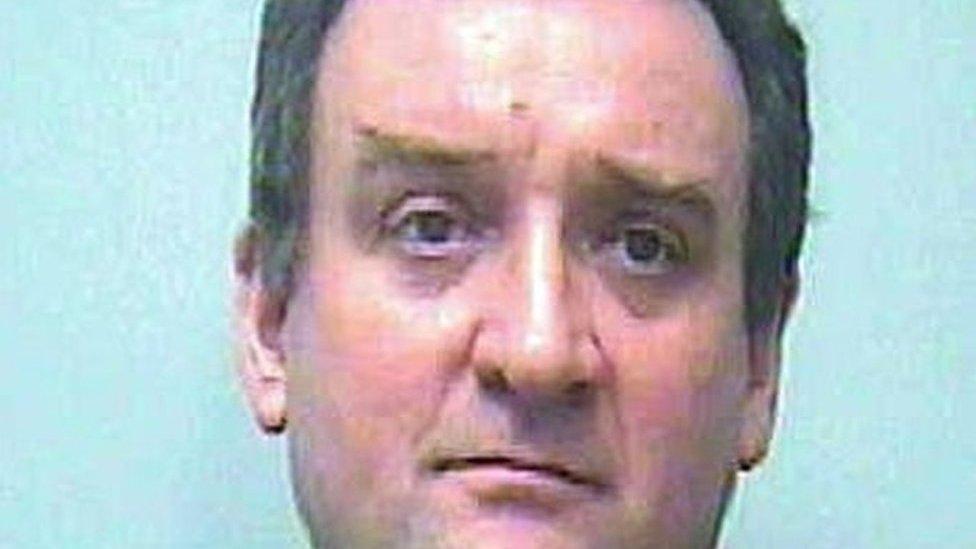Church of England 'faces two years of abuse revelations'
- Published
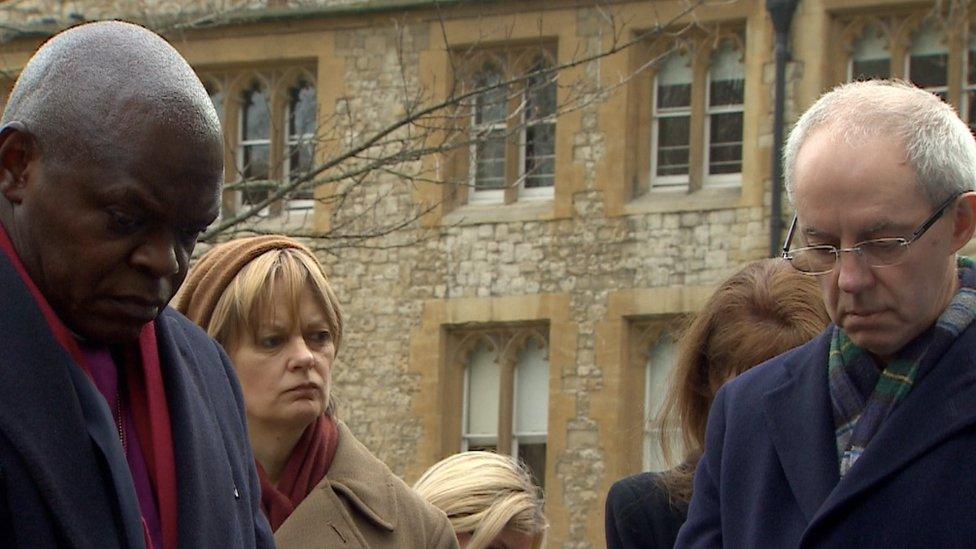
The Archbishops of York and Canterbury and other supporters of abuse victims joined the silent protest
The Church of England faces two years of revelations about sexual abuse and cover-ups, a bishop has said.
The Church will be the focus of hearings at the Independent Inquiry into Child Sexual Abuse next month.
The Bishop of Bath and Wells, the Rt Rev Peter Hancock, told the Church's ruling general synod: "We will hear deeply painful accounts of abuse, of poor response, and over cover-up."
Several bishops joined a silent protest by abuse survivors outside the synod.
Among them were the Archbishop of Canterbury, Justin Welby, and the Archbishop of York, John Sentamu and other supporters off the victims.
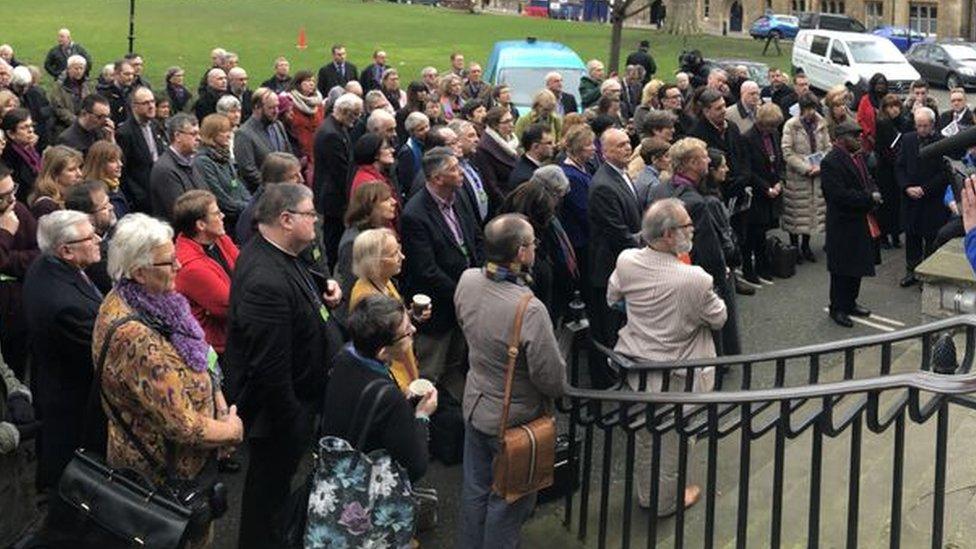
Despite this show of support, one of the protesters, Gilo, told the BBC that the Church was "failing" to set a good example in the way it handled complaints.
'Deep sense of shame'
He said: "One of the very sad things is that the structure behind me in Church House really has not been very good in its treatment of survivors."
Many survivors believed the national safeguarding team needed "total root and branch reform", he said.
"But more than anything that needs to happen from today is an overarching, independent ombudsbody to supervise and monitor the safeguarding of the Church so it's functional and operating cleanly."
In 2016, the Church of England was dealing with about 3,300 safeguarding concerns, a figure which includes historical allegations and non-sexual abuse.
Bishop Hancock, the lead bishop for safeguarding, told the synod that "this will not be an easy couple of years".
"We will, as our friends in the Anglican Church in Australia did, feel a deep sense of shame," he said.
A royal commission last year revealed more than 1,100 allegations of child sexual abuse in the Anglican Church in Australia over 35 years. The Church admitted it tried to silence victims to protect its reputation.
Tipping point
Sir Roger Singleton, a member of the Church's national safeguarding team, told the synod that there was a need for a culture change, with some clergy believing complainants were "simply out for the money".
He said that while archbishops, diocesan bishops and deans had made safety a priority, the attitudes of parish clergy and laity were "variable".
"I believe a tipping point has been reached where most clergy are informed, supportive of their parish (safeguarding) representatives... and willing to tackle reluctant church wardens or PCCs.
"But ambivalence, even hostility, continues with a minority who appear unable or unwilling to accept the need for sensible, proportionate measures, or who minimise the impacts which physical, sexual, emotional or spiritual abuse can have on people's lives, or who believe that complainants are simply out for the money."
Sir Roger said he was "fundamentally optimistic" that the necessary cultural change would happen.
The synod also unanimously backed a motion calling on the government to provide "comprehensive, unbiased information" about Down's Syndrome for parents who are told their unborn child has the condition.
The Bishop of Carlisle, the Right Reverend James Newcome, said the debate was not about the ethics of abortion, although there were fears that abortion rates for those diagnosed with Down's Syndrome could rise now it can be detected with a non-invasive test.
He said: "We are not telling people what to decide: but we do want the decisions that are made to be properly informed, and we don't want Down's Syndrome to be automatically presented as 'bad news'."
- Published15 December 2017
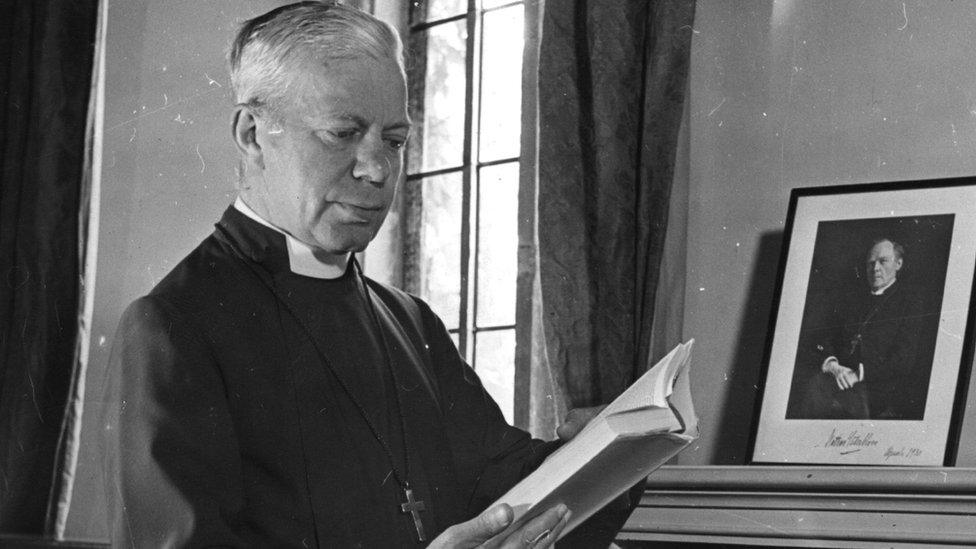
- Published9 July 2017
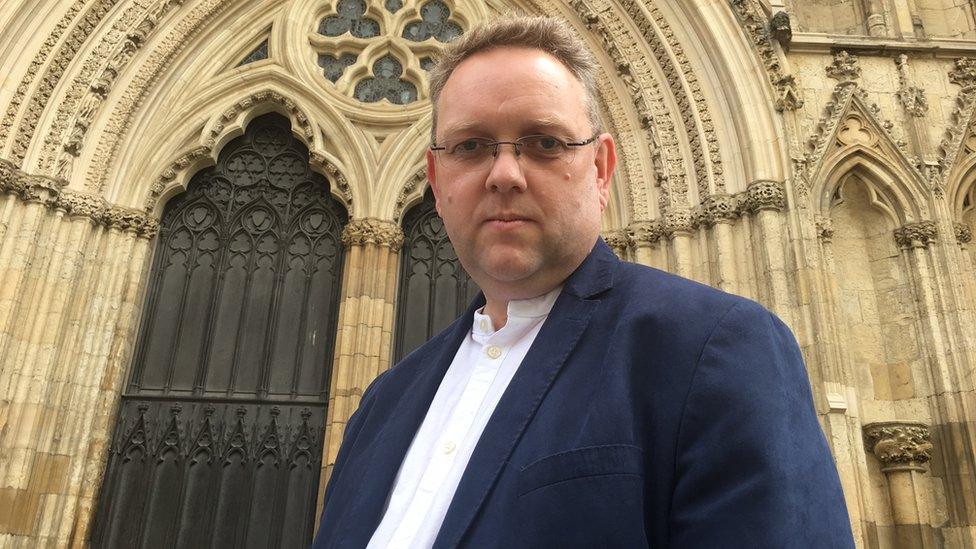
- Published9 October 2017
